第2章 CHAPTER I. DREADFUL TIDINGS.(2)
"The trunks contain perhaps the coffins of the imperial ancestors, which have been removed from the Kapuzinergruft, in order to save them from the French," said an honest tailor to his neighbor, and this romantic idea rolled immediately, like an avalanche, through the vast crowd.
"They are removing the remains of the old emperors from Vienna!" wailed the crowd. "Even the tombs are no longer safe! They are saving the corpses of the emperors, but they are forsaking us--the living! They abandon us to the tender mercies of the enemy! All who have not got the money to escape are lost! The French will come and kill us all!"
"We will not permit it!" shouted a stentorian voice. "We want to keep the remains of Maria Theresa and of the great Emperor Joseph here in Vienna. As long as they lived they loved the people of the capital, and they will protect us in death. Come, brethren, come; let us follow the wagons--let us stop them and take the bodies back to the Kapuzinergruft [Footnote: Vaults of the Capuchins]".
"Yes, let us follow the wagons and stop them," yelled the crowd, which now, when it could no longer see the flashing and threatening weapons of the soldiers, felt exceedingly brave.
Suddenly, however, these furious shouts and yells were interrupted by a powerful voice which ordered the people to desist, and they beheld a tall man who, with cat-like agility, climbed upon the iron lamp-post in the centre of the square.
"Stop, stop!" roared this man, extending his arms over the crowd as if, a new Moses, he wanted to allay the fury of the sea and cause it to stand still.
The crowd instantly obeyed this tremendous voice, and all these indignant, anxious, and terrified faces now turned toward the speaker who stood above them on top of the lamp-post.
"Don't make fools of yourselves," said he--"don't give these Hungarians--who would be only too glad to quench their present rage in German blood--a chance to break your bones. Have you any arms to compel them to show you the wagons and their contents? And even if you were armed, the soldiers would overpower you, for most of you would run away as soon as a fight broke out, and the balance of you would be taken to the calaboose. I will do you the favor, however, to tell you all about those wagons. Do you want to know it?"
"Yes, yes, we do!" shouted the crowd, emphatically. "Be quiet over there!--Stop your noise!--Do not cry so loud!--Hush!--Let us hear what is in the wagons.--Silence, silence!"
Profound silence ensued--everybody held his breath and listened.
"Well, then, listen to me. These wagons do not contain the remains of the former emperors, but the gold and the jewels of the present emperor. It is the state treasure which those hussars are escorting from Vienna to Presburg, because the government deems it no longer safe here. Just think of what we have come to now-a-days! Our imperial family, and even the state treasure, must flee from Vienna!
And whose fault is it that we have to suffer all this? Who has brought these French down upon us? Who is inundating all Austria with war and its calamities? Shall I tell you who is doing it?"
"Yes, tell us, tell us!" shouted the crowd. "Woe unto him who has plunged Austria into war and distress, and caused the flight of the emperor and the removal of the treasure from Vienna!"
The speaker waited until the angry waves of the people's wrath had subsided again, and then said in the clear, ringing tones of his powerful voice: "It is the fault of our prime minister, Baron von Thugut. He don't want us to make peace with the French. He would rather ruin us all than to make peace with the French Republic."
"But we don't want to be ruined!" shouted the crowd--"we don't want to be led to the shambles like sheep. No, no; we want peace--peace with France. Prime Minister Thugut shall give us peace with France!"
"You had better go and inform the proud minister himself of what you want," said the speaker with a sneer. "First compel him to do what the emperor and even our brave Archduke Charles wanted to be done-- compel the omnipotent minister to make peace."
"We will go and ask him to give us peace," said several voices in the crowd.
"Yes, yes, we will do that!" shouted others. "Come, come; let us all go to the minister's house and ask him to give us back the emperor and the state treasure, and to make peace with Bonaparte."
The speaker now descended hurriedly from the lamp-post. His tall, herculean figure, however, towered above the crowd even after his feet had touched the pavement.
"Come," said he to the bystanders in a loud and decided tone, "I will take you to the minister's house, for I know where he lives, and we will shout and raise such a storm there until the proud gentleman condescends to comply with our wishes."
He led the way rapidly, and the crowd, always easily guided and pliable, followed its improvised leader with loud acclamations. Only one idea, only one wish, animated all these men: they wanted peace with France, lest Bonaparte might come to Vienna and lay their beautiful capital in ashes in the same manner in which he had treated so many Italian cities.
Their leader walked proudly at the head of the irregular procession; and as the crowd continued to shout and yell, "Peace with France!" he muttered, "I think I have accomplished a good deal to-day. The archduke will be satisfied with what I have done, and we may compel the minister after all to make peace with France."